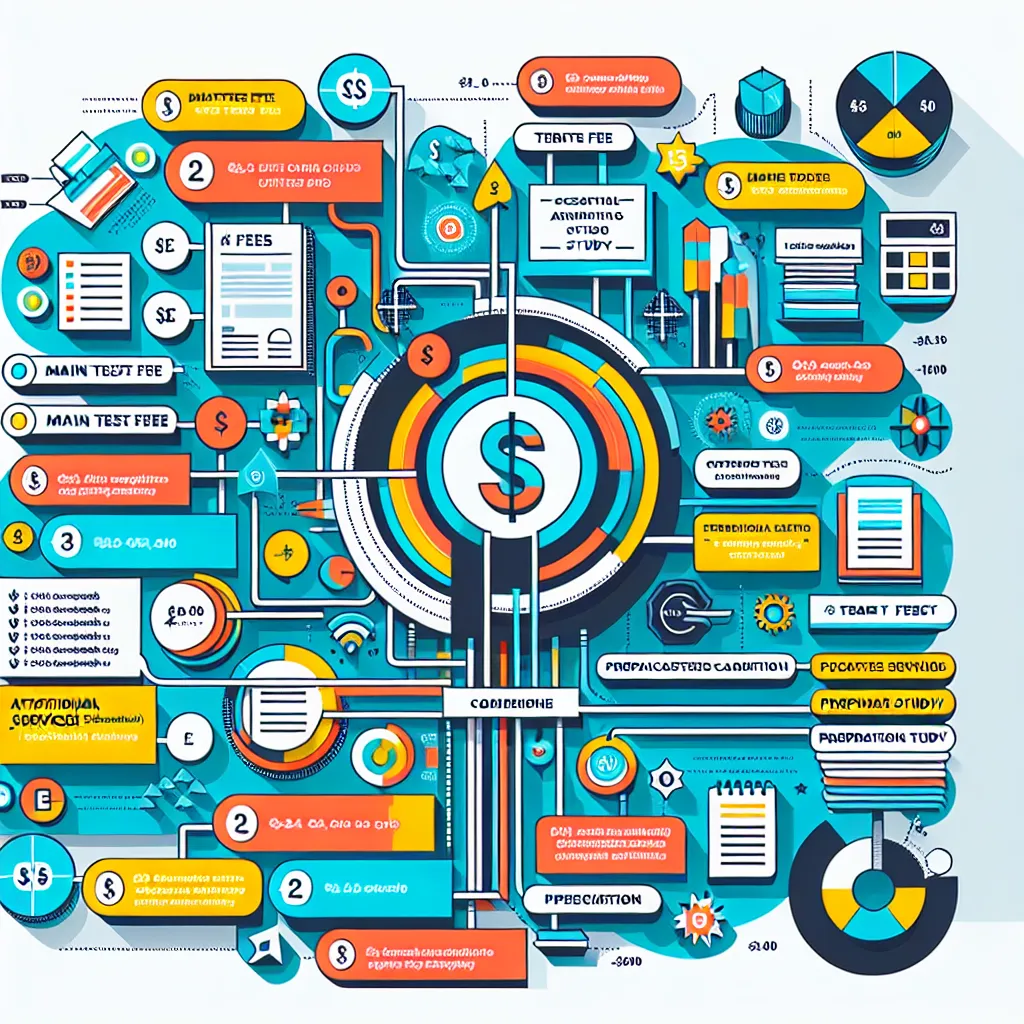Are you planning to take the IELTS exam but unsure about the costs involved? This comprehensive guide will break down the expenses associated with taking the IELTS test, helping you budget effectively for your language certification journey.
Understanding IELTS Exam Fees
The IELTS (International English Language Testing System) is a widely recognized English proficiency test. However, the cost of taking the IELTS exam can vary depending on several factors.
Basic IELTS Test Fee
The core expense for taking the IELTS exam is the test fee itself. This fee typically ranges from $200 to $300 USD, depending on your location and the test center. It’s important to note that this base fee covers:
- The actual test (Listening, Reading, Writing, and Speaking sections)
- Access to your results online
- One copy of your Test Report Form (TRF)

Additional Costs to Consider
While the basic test fee covers the essentials, there are other potential expenses you should be aware of:
-
Preparation Materials:
- IELTS preparation books: $20-$50 per book
- Online courses: $50-$500 depending on the provider and course length
- Private tutoring: $20-$100 per hour
-
Practice Tests:
- Official IELTS practice materials: $30-$70
- Online mock tests: $10-$50 per test
-
Optional Services:
- Additional copies of your TRF: $20-$30 per copy
- Express results service (where available): $50-$100
- Enquiry on Results (EOR) fee: $80-$150 (refundable if your band score changes)
-
Transportation Costs:
- Travel to and from the test center (varies widely based on location)
Factors Affecting IELTS Exam Costs
Several factors can influence the total cost of taking the IELTS exam:
Geographic Location
Test fees can vary significantly from country to country. For example:
- USA: $225-$250
- UK: £150-£200 (approximately $190-$255 USD)
- Australia: AUD$375-$395 (approximately $245-$260 USD)
- India: INR 14,000-15,500 (approximately $170-$190 USD)
Always check with your local test center for the most accurate pricing.
Type of IELTS Test
There are two main types of IELTS tests, and their costs may differ slightly:
- Academic IELTS: Generally more expensive due to its use for higher education and professional registration.
- General Training IELTS: Often slightly less expensive, used for migration purposes.
Test Format
The cost may also vary depending on whether you choose:
- Paper-based IELTS
- Computer-delivered IELTS
Computer-delivered tests are sometimes priced slightly higher but offer faster results.
How to Minimize IELTS Exam Costs
While the IELTS exam is a significant investment, there are ways to manage and potentially reduce your expenses:
-
Plan Early: Book your test well in advance to avoid any last-minute rush fees or the need for express services.
-
Self-Study: Utilize free online resources and affordable books instead of expensive courses.
-
Group Study: Form or join study groups to share resources and practice speaking skills for free.
-
Take Advantage of Free Resources: Use official IELTS practice materials available online at no cost.
-
Consider Computer-Delivered Tests: These often provide faster results without the need for express services.
-
Check for Promotions: Some test centers occasionally offer discounts or package deals.
Important Considerations
When budgeting for your IELTS exam, keep these points in mind:
- Validity: IELTS scores are typically valid for two years. Plan your test date accordingly to avoid retaking the exam unnecessarily.
- Retake Costs: If you need to retake the test, you’ll have to pay the full fee again. Prepare thoroughly to maximize your chances of success on the first attempt.
- Hidden Costs: Factor in potential travel and accommodation expenses if the nearest test center is far from your location.
Next Steps
Now that you understand the costs associated with taking the IELTS exam, you can:
- Research specific prices for your location and preferred test format.
- Create a budget that includes both the test fee and preparation costs.
- Start your IELTS preparation journey with a clear financial plan.
- Consider setting aside a small emergency fund in case you need to retake the test.
Remember, while the cost of taking the IELTS exam is significant, it’s an investment in your future. Whether for education, career advancement, or migration purposes, a good IELTS score can open doors to numerous opportunities worldwide.
By understanding and planning for these costs, you can focus on what truly matters – preparing effectively for the exam and achieving your desired band score. Good luck with your IELTS journey!